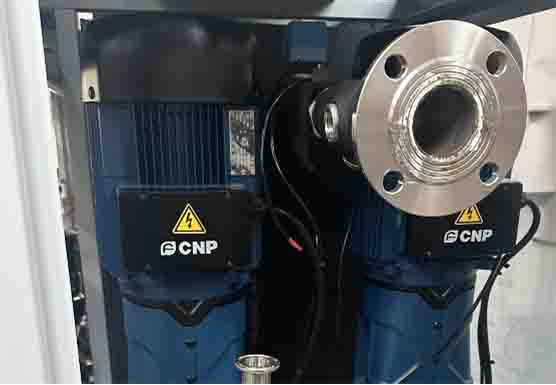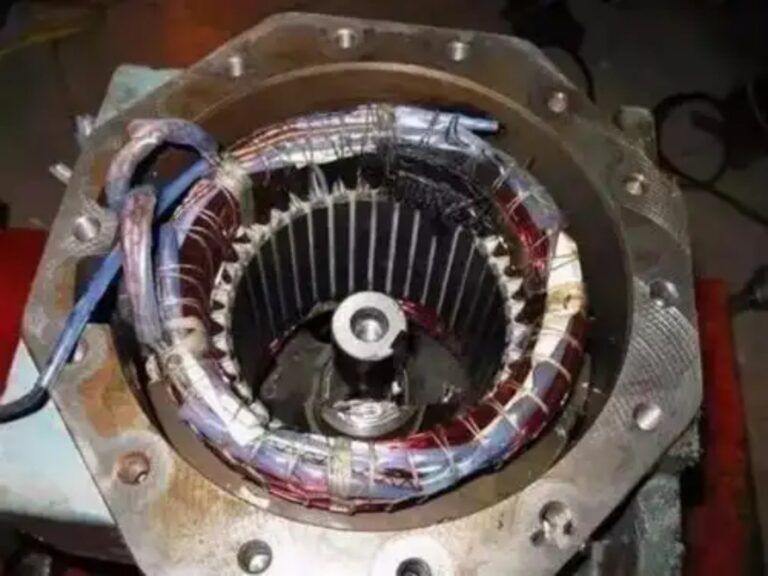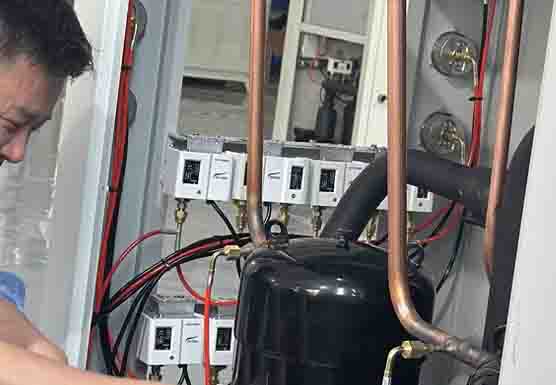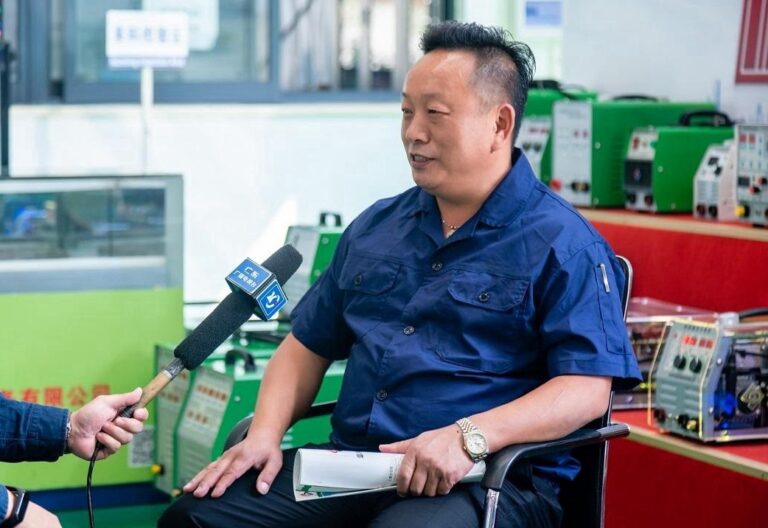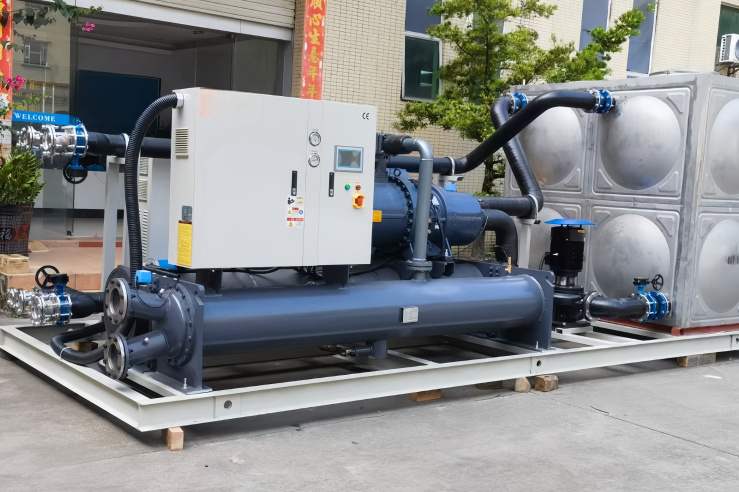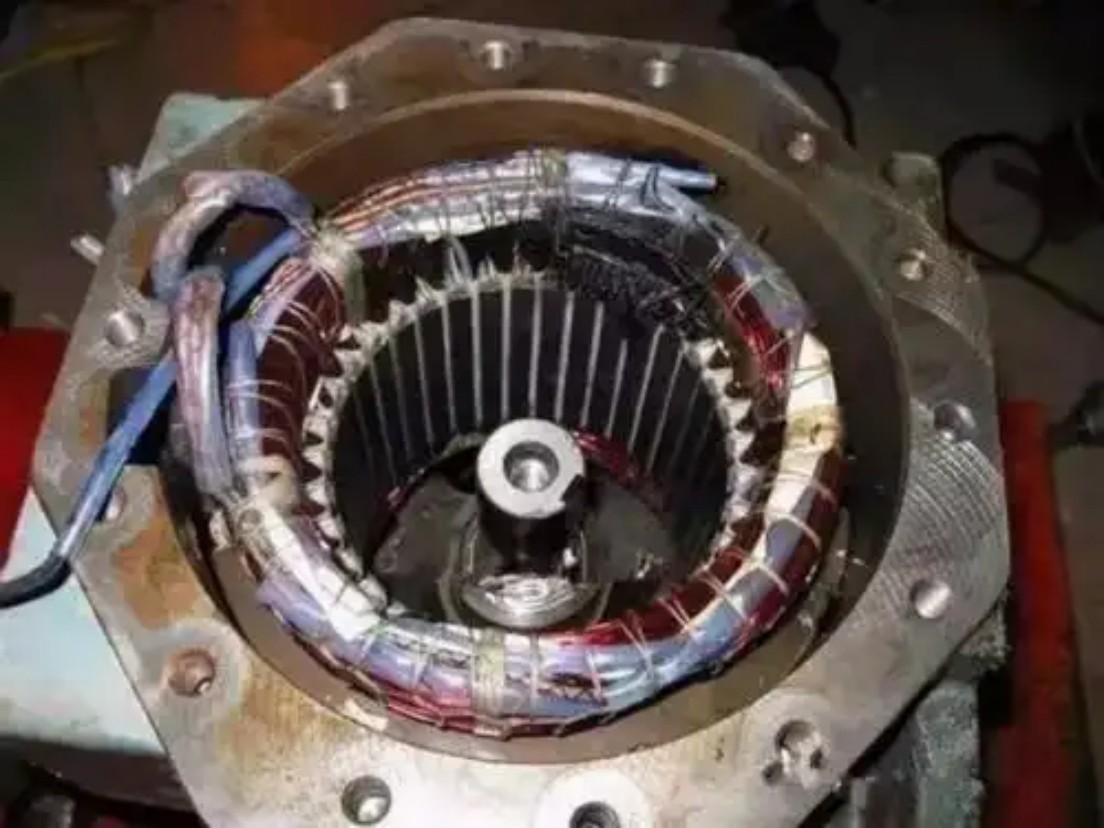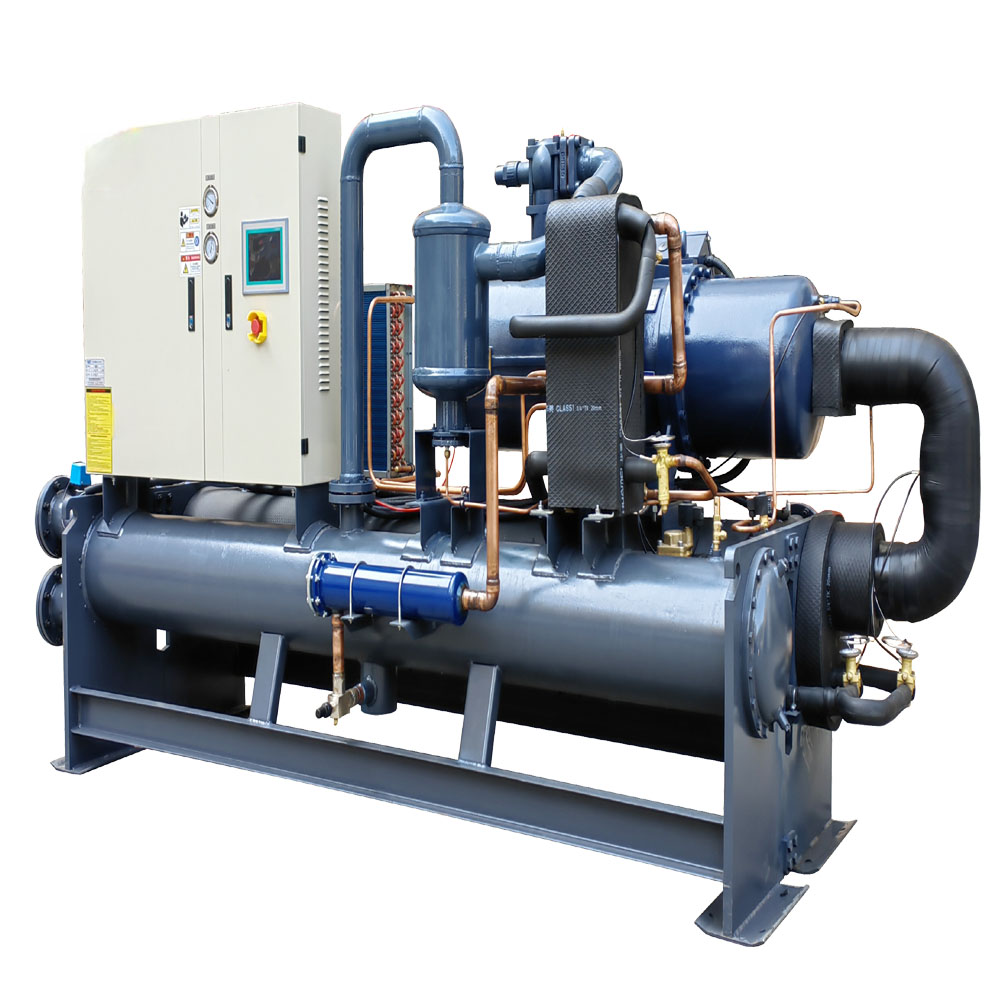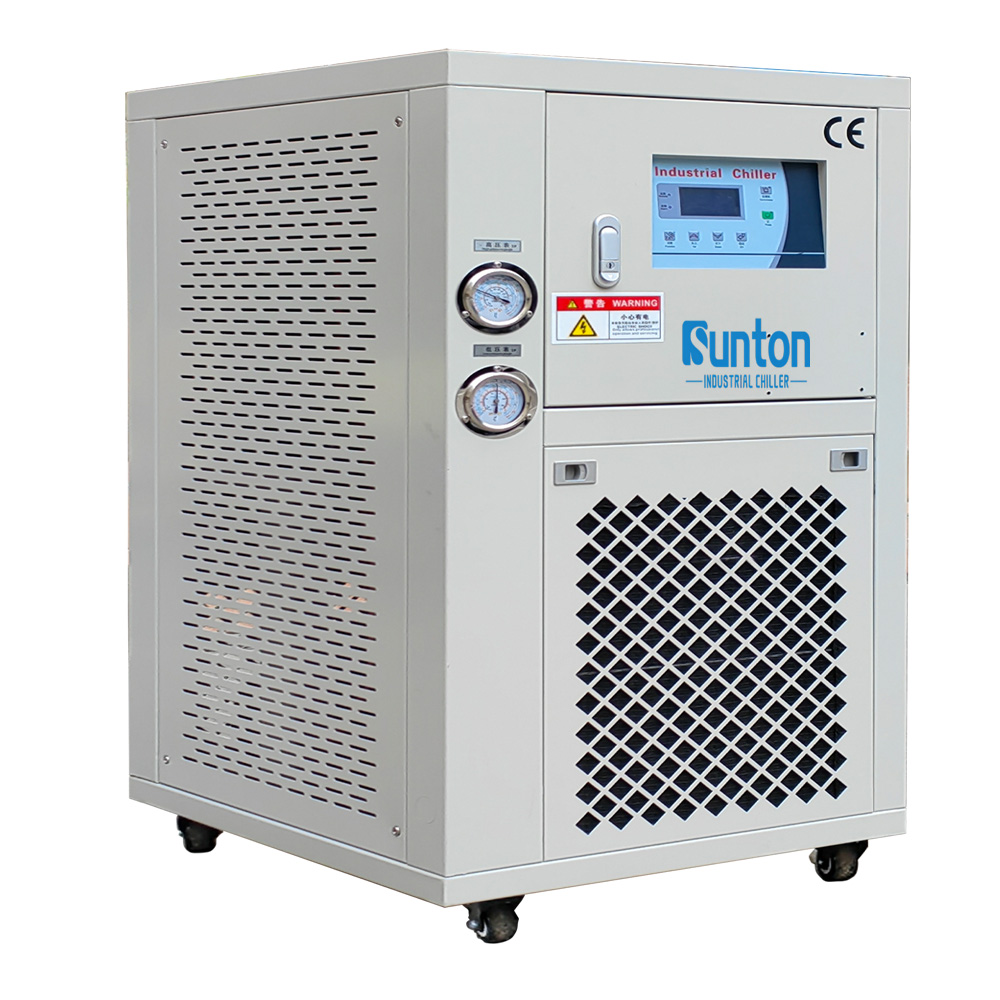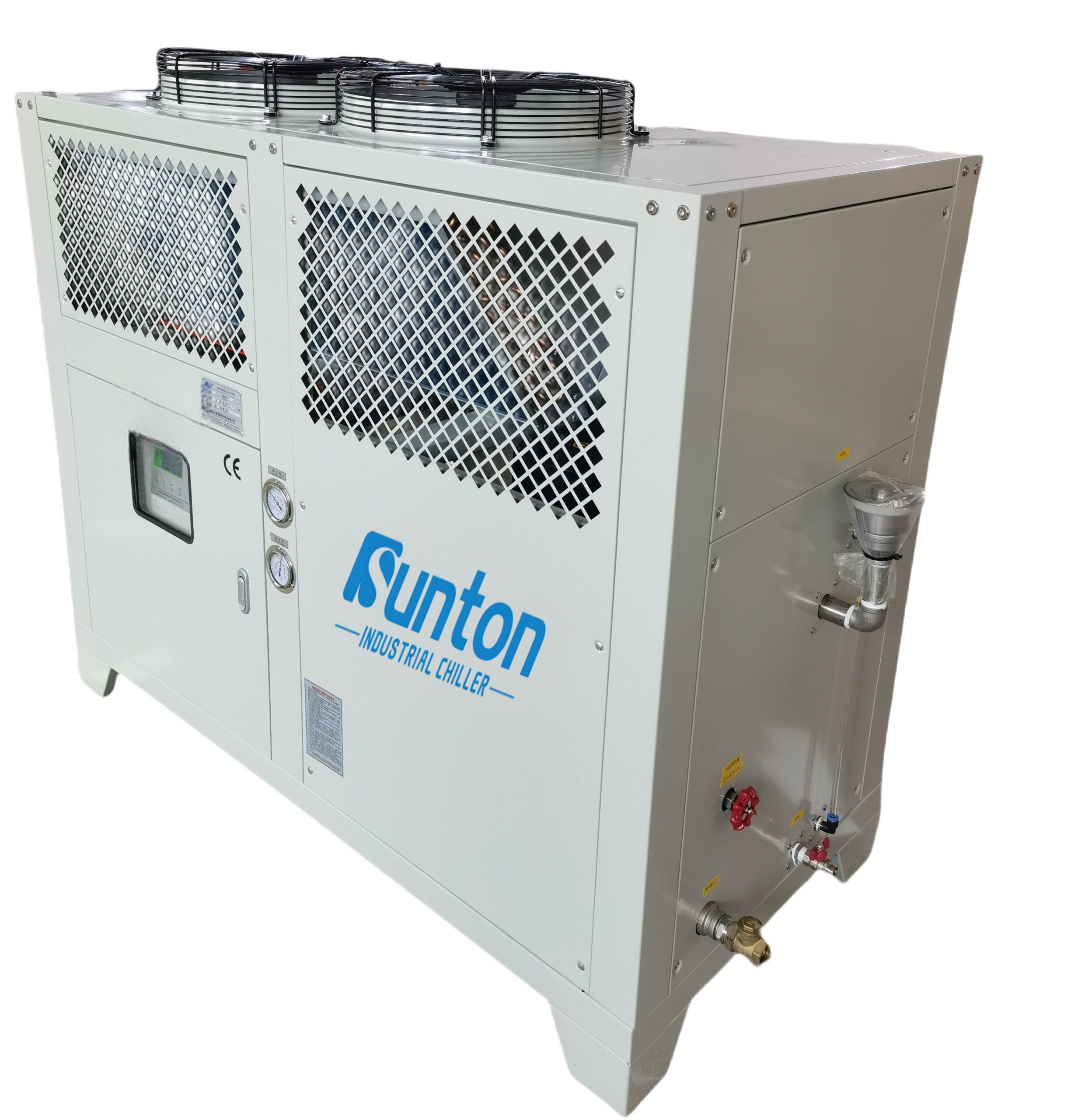-
Khu công nghiệp Dalingshan Quảng Đông
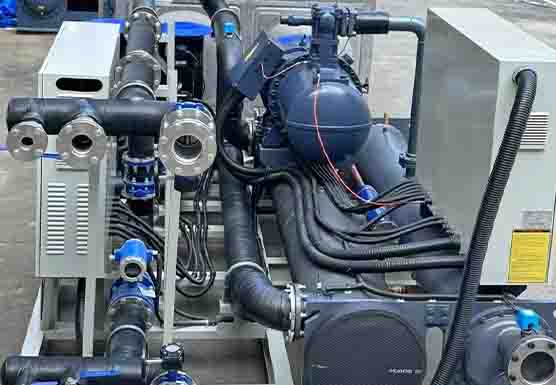
máy làm lạnh là gì và nó hoạt động như thế nào?
Máy làm lạnh công nghiệp hoạt động như thế nào: Hướng dẫn toàn diện về cách làm mát hoạt động của bạn
Bài viết này đi sâu vào hoạt động phức tạp của công nghiệp máy làm lạnh, các thành phần thiết yếu trong nhiều ngành công nghiệp đòi hỏi kiểm soát nhiệt độ chính xác. Từ sản xuất đến chế biến thực phẩm, hiểu cách thức các hệ thống này mát mẻ và vận hành là rất quan trọng để duy trì hiệu quả và chất lượng sản phẩm. Hướng dẫn toàn diện này sẽ đơn giản hóa máy làm lạnh công nghệ, các thành phần và ứng dụng của nó, khiến nó trở thành một tài liệu đáng đọc cho bất kỳ ai muốn đào sâu kiến thức của họ về máy làm lạnh công nghiệp hệ thống và cách chúng có thể mang lại lợi ích cho hoạt động của họ. Là chuyên gia trong máy làm lạnh nước công nghiệp nhà máy sản xuất, chúng tôi rất vui được chia sẻ hiểu biết của mình với bạn, nhằm mục đích làm cho chủ đề phức tạp này dễ hiểu hơn và làm nổi bật vai trò quan trọng máy làm lạnh phát huy tác dụng trong bối cảnh công nghiệp ngày nay.
Mục lục
Máy làm lạnh công nghiệp là gì và nó hoạt động như thế nào?
MỘT máy làm lạnh công nghiệp là một hệ thống làm mát mà loại bỏ nhiệt từ một quá trình hoặc chất. Máy làm lạnh được thiết kế để mát mẻ chất lỏng, sau đó được sử dụng để mát mẻ thiết bị hoặc sản phẩm. Chúng được sử dụng trong nhiều ngành công nghiệp khác nhau, bao gồm nhựa, thực phẩm và đồ uống, dược phẩm và HVAC. Là chuyên gia trong máy làm lạnh nước công nghiệp sản xuất, chúng tôi hiểu rằng cơ bản công việc làm lạnh nguyên tắc liên quan đến sự lưu thông của một chất làm lạnh thông qua một vòng khép kín hệ thống, hấp thụ nhiệt và phát hành ở nơi khác.
Máy làm lạnh hoạt động trên nguyên lý nén hơi hoặc chu trình làm lạnh hấp thụ. nguyên lý làm việc của một máy làm lạnh tương tự như tủ lạnh. A chất làm lạnh được lưu thông qua hệ thống làm lạnh, nơi nó hấp thụ nhiệt từ quá trình chất lỏng. chất làm lạnh sau đó mang theo cái này nhiệt đến tụ điện, nơi nó được thải ra môi trường. quá trình làm mát bắt đầu với máy bốc hơi, nơi chất lỏng chất làm lạnh hấp thụ nhiệt. Quá trình này biến chất làm lạnh thành khí. Khí chất làm lạnh sau đó di chuyển đến máy nén, tăng áp suất và nhiệt độ của nó. Tiếp theo, chất làm lạnh chảy đến tụ điện, nơi nó giải phóng chất hấp thụ nhiệt, quay trở lại thành chất lỏng. Cuối cùng, chất làm lạnh đi qua một van giãn nở, giảm áp suất và nhiệt độ trước khi trở về máy bay hơi để bắt đầu lại chu kỳ. Máy làm lạnh đi kèm với một trong hai làm mát bằng không khí hoặc làm mát bằng nước tụ điện để tiêu tán nhiệt tùy thuộc vào môi trường lắp đặt và yêu cầu về công suất làm mát.
Có những loại máy làm lạnh công nghiệp nào?
Máy làm lạnh công nghiệp rất quan trọng để duy trì nhiệt độ tối ưu trong nhiều môi trường sản xuất và chế biến khác nhau. Về cơ bản có hai các loại máy làm lạnh công nghiệp: máy làm lạnh bằng không khí Và máy làm lạnh giải nhiệt bằng nước. Sự lựa chọn giữa làm mát bằng nước và làm mát bằng không khí phụ thuộc vào các yếu tố như môi trường hoạt động, công suất làm mát cần thiết và các nguồn lực sẵn có. Chúng tôi biết nhiều khách hàng thích máy làm lạnh trục vít làm mát bằng không khí mà chúng tôi có sẵn cho nhiều ứng dụng khác nhau.
- Máy làm lạnh bằng không khí sử dụng không khí xung quanh để loại bỏ nhiệt từ chất làm lạnh. Chúng có đặc điểm là tụ điện được làm mát bằng quạt ép không khí qua các ống hở. Máy làm lạnh bằng không khí thường dễ cài đặt và bảo trì hơn máy làm lạnh giải nhiệt bằng nước. MỘT máy làm lạnh bằng không khí có thiết kế đơn giản nhưng có thể không phù hợp với môi trường có nhiệt độ môi trường cao. Ưu điểm của việc sử dụng máy làm lạnh bằng không khí bao gồm chi phí lắp đặt thấp hơn và bảo trì dễ dàng hơn vì chúng không yêu cầu tháp giải nhiệt hoặc nguồn nước ổn định.
- Máy làm lạnh giải nhiệt bằng nước sử dụng Nước để loại bỏ nhiệt từ chất làm lạnh. MỘT máy làm lạnh giải nhiệt bằng nước yêu cầu một tháp giải nhiệt hoặc một nguồn khác nước mát để hoạt động bình thường. nhiệt từ chất làm lạnh được chuyển đến nước, sau đó được bơm đến một tháp giải nhiệt nơi mà nhiệt bị tiêu tan. Máy làm lạnh giải nhiệt bằng nước hiệu quả hơn trong môi trường nhiệt độ cao và có khả năng làm mát cao hơn so với máy làm lạnh bằng không khí, khiến chúng trở nên lý tưởng cho các ứng dụng công nghiệp lớn.
Máy nén hoạt động như thế nào trong hệ thống làm lạnh?
Các máy nén là trái tim của hệ thống làm lạnh. Nó có trách nhiệm nén chất làm lạnh khí, làm tăng nhiệt độ và áp suất của nó. Máy làm lạnh công nghiệp các đơn vị sử dụng nhiều loại khác nhau máy nén, bao gồm cuộn, vít và ly tâm, mỗi loại có ứng dụng và mức hiệu quả cụ thể. loại máy làm lạnh và ứng dụng của nó thường quyết định sự lựa chọn máy nén.
Các máy nén đóng vai trò quan trọng trong hệ thống làm lạnh bằng cách tăng áp lực của chất làm lạnh khí. Quá trình này cũng làm tăng nhiệt độ của chất làm lạnh, chuẩn bị cho nó nhiệt giai đoạn từ chối trong tụ điện. Là nhà sản xuất, chúng tôi tại công nghiệp máy làm lạnh nhà máy tập trung vào việc tích hợp hiệu quả cao máy nén mà tăng cường hiệu suất hệ thống trong khi giảm thiểu mức tiêu thụ năng lượng. máy nén sau đó bơm nước nóng, áp suất cao chất làm lạnh khí đốt đến tụ điện. Có nhiều loại khác nhau các loại máy làm lạnh công nghiệp có sẵn, bao gồm cuộn, vít và ly tâm máy làm lạnh, mỗi loại có một loại khác nhau máy nén.
Tại sao tháp giải nhiệt lại quan trọng đối với hoạt động của máy làm lạnh?
MỘT tháp giải nhiệt là điều cần thiết cho máy làm lạnh giải nhiệt bằng nước hệ thống. Đây là thiết bị thải nhiệt giúp đẩy chất thải ra ngoài nhiệt vào khí quyển thông qua việc làm mát dòng nước xuống nhiệt độ thấp hơn. Theo kinh nghiệm của chúng tôi, tháp giải nhiệt nâng cao đáng kể hiệu quả của máy làm lạnh giải nhiệt bằng nước bằng cách cung cấp một nguồn cung cấp ổn định nước mát. Chúng tôi cũng bán chúng! Tháp giải nhiệt có thể mua trên trang web của chúng tôi.
Tháp giải nhiệt chủ yếu được sử dụng kết hợp với máy làm lạnh giải nhiệt bằng nước. Các tháp giải nhiệt làm mát nước được sử dụng trong tụ điện của máy làm lạnh. Như Nước hấp thụ nhiệt từ chất làm lạnh, nó được bơm vào tháp giải nhiệt, nơi nó được phun vào không khí. Quá trình này cho phép nhiệt để tiêu tan và làm mát Nước sau đó là trở về máy làm lạnh. Kích thước phù hợp tháp giải nhiệt đảm bảo rằng máy làm lạnh hoạt động theo đúng thông số thiết kế, duy trì hiệu quả và tuổi thọ của hệ thống.
Làm thế nào để chọn máy làm lạnh phù hợp cho quy trình công nghiệp của bạn?
Lựa chọn máy làm lạnh bên phải cho một quá trình công nghiệp liên quan đến một số yếu tố, bao gồm khả năng làm mát, nhiệt độ hoạt động, điều kiện môi trường và hiệu quả năng lượng. Điều cần thiết là phải phù hợp máy làm lạnh thông số kỹ thuật với nhu cầu cụ thể của ứng dụng của bạn. Chúng tôi khuyên bạn nên đánh giá kỹ lưỡng làm mát yêu cầu để đảm bảo lựa chọn máy làm lạnh đáp ứng nhu cầu hoạt động của bạn.
Bước đầu tiên trong việc lựa chọn máy làm lạnh bên phải là để xác định số lượng nhiệt cần phải được loại bỏ khỏi quá trình. Điều này sẽ xác định kích thước và loại máy làm lạnh bắt buộc. máy làm lạnh quy trình công nghiệp Sản phẩm của chúng tôi được thiết kế để phục vụ cho nhiều ngành công nghiệp khác nhau, đảm bảo hiệu suất và độ tin cậy tối ưu. Máy làm lạnh công nghiệp là điều cần thiết để duy trì nhiệt độ cần thiết trong các quy trình sản xuất khác nhau. Các yếu tố cần xem xét bao gồm loại chất làm lạnh được sử dụng, máy nén hiệu quả và máy làm lạnh thiết kế tổng thể.
Các thành phần chính của máy làm lạnh công nghiệp là gì?
MỘT máy làm lạnh công nghiệp bao gồm một số thành phần chính, bao gồm máy nén, tụ điện, máy bốc hơi, Và van giãn nở. Mỗi thành phần đóng một vai trò quan trọng trong làm lạnh chu kỳ. Tại các nhà máy của chúng tôi, chúng tôi chú ý tỉ mỉ đến việc thiết kế và tích hợp các thành phần này để đảm bảo tối ưu máy làm lạnh hiệu suất.
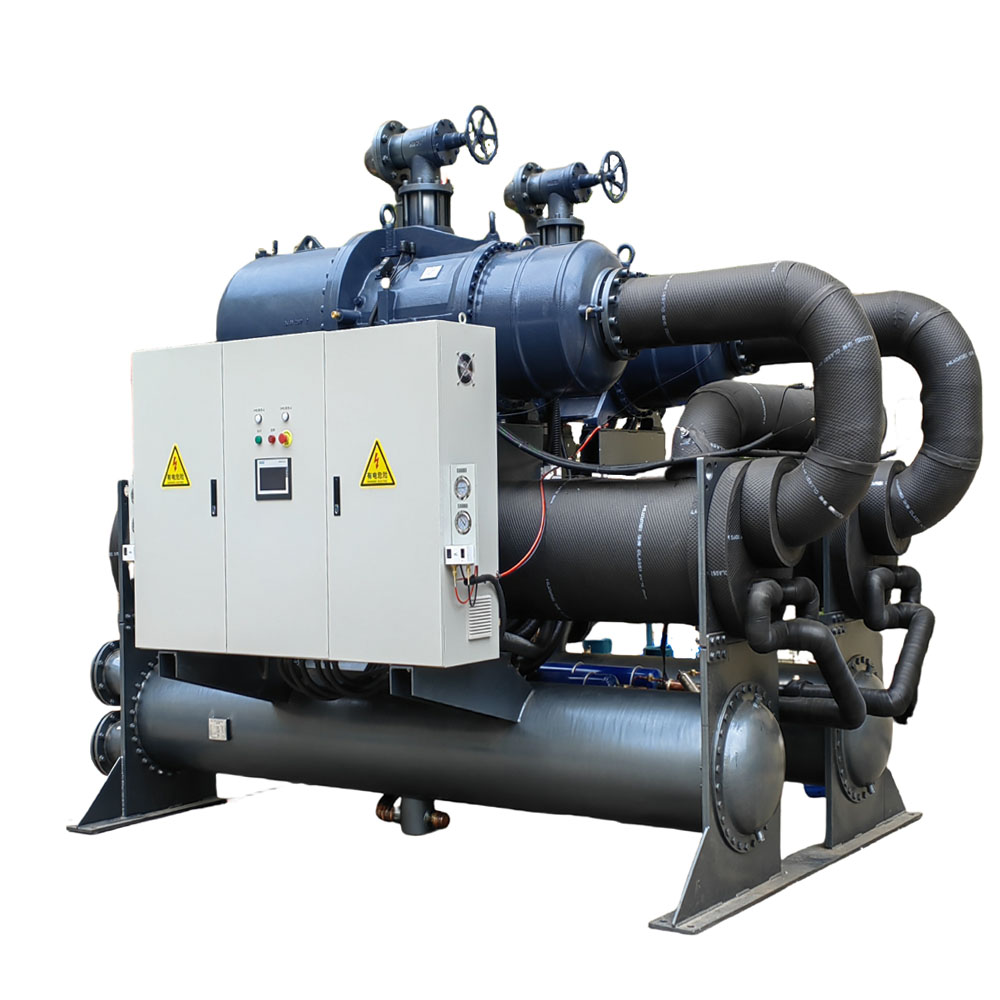
Các máy nén nén các chất làm lạnh khí, làm tăng nhiệt độ và áp suất của nó. tụ điện loại bỏ nhiệt từ chất làm lạnh, khiến nó ngưng tụ trở lại thành chất lỏng. Các máy bốc hơi hấp thụ nhiệt từ chất lỏng trong quá trình, gây ra chất làm lạnh để bốc hơi. van giãn nở điều chỉnh dòng chảy của chất làm lạnh vào máy bốc hơi.
Máy làm lạnh công nghiệp khác với máy làm lạnh tiêu chuẩn như thế nào?
Máy làm lạnh quy trình công nghiệp được thiết kế cho các ứng dụng nặng, cung cấp khả năng kiểm soát nhiệt độ chính xác cho các quy trình công nghiệp. Không giống như tiêu chuẩn máy làm lạnh, có thể được sử dụng cho mục đích làm mát chung, máy làm lạnh quy trình công nghiệp được thiết kế để chịu được sự khắc nghiệt của hoạt động liên tục trong môi trường khắc nghiệt.
Máy làm lạnh quy trình thường được sử dụng để mát mẻ chất lỏng đến một nhiệt độ cụ thể, sau đó được lưu thông qua quá trình thiết bị để loại bỏ nhiệt. Máy làm lạnh quy trình công nghiệp thường được sử dụng trong ngành nhựa, thực phẩm và đồ uống, và dược phẩm. Những máy làm lạnh thường kết hợp các tính năng tiên tiến như ổ đĩa tốc độ thay đổi, hệ thống điều khiển tinh vi và vật liệu chuyên dụng để đáp ứng nhu cầu cụ thể của các ứng dụng công nghiệp.
Máy làm lạnh công nghiệp cần bảo trì những gì?
Thường xuyên bảo trì máy làm lạnh là điều cần thiết để đảm bảo hiệu suất và tuổi thọ tối ưu. Các nhiệm vụ bảo trì thường bao gồm vệ sinh tụ điện Và máy bốc hơi cuộn dây, kiểm tra chất làm lạnh mức độ và kiểm tra máy nén và các thành phần khác. Chúng tôi nhấn mạnh tầm quan trọng của việc bảo trì phòng ngừa để tránh thời gian ngừng hoạt động tốn kém và đảm bảo hoạt động đáng tin cậy.
Thích hợp bảo trì máy làm lạnh có thể giúp ngăn ngừa sự cố, giảm mức tiêu thụ năng lượng và kéo dài tuổi thọ của máy làm lạnh. Máy làm lạnh yêu cầu bảo trì thường xuyên để đảm bảo chúng hoạt động hiệu quả và đáng tin cậy. Điều quan trọng nữa là phải theo dõi máy làm lạnh hiệu suất và giải quyết mọi vấn đề kịp thời. Nhiều máy làm lạnh công nghiệp được trang bị các công cụ chẩn đoán tích hợp giúp xác định sớm các vấn đề tiềm ẩn.
Làm thế nào để tuần hoàn nước hiệu quả trong hệ thống làm lạnh?
Lưu thông nước hiệu quả là rất quan trọng đối với hiệu suất của một hệ thống làm lạnh. Các hệ thống bơm tuần hoàn nước mát hoặc dung dịch nước/glycol từ máy làm lạnh đến quy trình hoặc thiết bị. Kích thước phù hợp của máy bơm và đường ống đảm bảo rằng chất làm mát đạt đến đích ở lưu lượng và nhiệt độ cần thiết.
Các Nước thường được lưu hành thông qua hệ thống làm lạnh sử dụng máy bơm. Máy bơm phải có kích thước phù hợp để đảm bảo lưu lượng và áp suất đầy đủ. Đường ống hệ thống cũng nên được thiết kế để giảm thiểu sự sụt áp suất và đảm bảo truyền nhiệt hiệu quả. Chuyên môn của chúng tôi trong máy làm lạnh thiết kế bao gồm tối ưu hóa hệ thống tuần hoàn để đạt hiệu quả và độ tin cậy tối đa. Chúng tôi cũng cung cấp chất lượng cao máy làm lạnh nước dạng cuộn làm mát bằng nước.
Làm thế nào để chọn máy làm lạnh tốt nhất cho nhu cầu cụ thể của bạn?
Lựa chọn máy làm lạnh tốt nhất bao gồm việc đánh giá toàn diện các yêu cầu cụ thể của bạn, bao gồm công suất làm mát, điều kiện vận hành và ngân sách. Máy làm lạnh cũng được sử dụng trong Hệ thống HVAC ĐẾN cung cấp làm mát cho các tòa nhà lớn. Chúng tôi hướng dẫn khách hàng của mình trong suốt quá trình này, xem xét các yếu tố như loại quá trình công nghiệp, phạm vi nhiệt độ cần thiết và các cân nhắc về môi trường.
Các máy làm lạnh bên phải cho nhu cầu của bạn sẽ phụ thuộc vào ứng dụng và yêu cầu cụ thể. Các yếu tố cần xem xét bao gồm khả năng làm mát, phạm vi nhiệt độ hoạt động, loại máy làm lạnh (làm mát bằng không khí hoặc làm mát bằng nước) và không gian có sẵn. Bằng cách làm việc chặt chẽ với khách hàng, chúng tôi đảm bảo rằng các máy làm lạnh cung cấp hiệu suất và giá trị tối ưu. Chúng tôi cung cấp nhiều loại máy làm lạnh công nghiệp có sẵn để phù hợp với nhiều ứng dụng khác nhau.
| Ngành công nghiệp | Loại máy làm lạnh | Công suất làm mát (Tấn) | Phạm vi nhiệt độ (°C) | Các tính năng chính |
| Nhựa và Cao su | Vít làm mát bằng nước | 50-500 | 5-20 | Hiệu quả cao, kiểm soát nhiệt độ chính xác, thiết kế mạnh mẽ |
| Gia công | Cuộn làm mát bằng không khí | 10-100 | 7-25 | Nhỏ gọn, dễ lắp đặt, ít bảo trì |
| Thực phẩm và đồ uống | Máy làm lạnh Glycol | 20-200 | -10-15 | Vật liệu cấp thực phẩm, khả năng chịu nhiệt độ thấp, thiết kế hợp vệ sinh |
| Hóa chất và Dược phẩm | Máy làm lạnh chống cháy nổ | 30-300 | 0-25 | Được chứng nhận ATEX, các tính năng an toàn nâng cao, vật liệu chống ăn mòn |
| Điện tử | Làm mát bằng không khí ly tâm | 100-1000 | 7-30 | Hiệu suất cao ở tải một phần, hoạt động êm ái, làm mát chính xác |
| Tia laze | Cuộn làm mát bằng nước | 5-50 | 15-25 | Độ ổn định nhiệt độ chính xác, thiết kế nhỏ gọn, hiệu suất đáng tin cậy |
| In ấn | Vít làm mát bằng không khí | 40-400 | 10-20 | Làm mát liên tục, hiệu suất cao, kết cấu bền bỉ |
| Thuộc về y học | Mô-đun làm mát bằng nước | 25-250 | 4-20 | Dự phòng, khả năng mở rộng, kiểm soát nhiệt độ chính xác, hoạt động yên tĩnh |
| Phòng thí nghiệm và nghiên cứu | Máy làm lạnh nhiệt độ thấp | 5-50 | -40-10 | Khả năng chịu nhiệt độ cực thấp, độ chính xác cao, hệ thống điều khiển tiên tiến |
| Trung tâm dữ liệu | Ly tâm/Vít làm mát bằng nước | 200-2000 | 6-18 | Hiệu suất cao, công suất lớn, hoạt động liên tục đáng tin cậy |
Câu hỏi thường gặp
Chức năng chính của máy làm lạnh công nghiệp là gì?
Chức năng chính của một máy làm lạnh công nghiệp là để loại bỏ nhiệt từ một quá trình công nghiệp hoặc thiết bị bằng cách lưu thông một chất làm mát, chẳng hạn như nước hoặc hỗn hợp nước/glycol. Điều này giúp duy trì nhiệt độ hoạt động tối ưu và đảm bảo hiệu quả và tuổi thọ của máy móc.
Tôi nên bảo trì máy làm lạnh bao lâu một lần?
Bảo trì thường xuyên là rất quan trọng cho hoạt động hiệu quả của bạn máy làm lạnh. Nên thực hiện kiểm tra thường xuyên ít nhất sáu tháng một lần, bao gồm vệ sinh cuộn dây, kiểm tra chất làm lạnh mức độ và kiểm tra máy nén và các thành phần khác. Chúng tôi thực sự khuyên bạn nên xem qua máy làm lạnh chống nổ cũng như vậy.
Sự khác biệt giữa máy làm lạnh bằng không khí và máy làm lạnh bằng nước là gì?
Máy làm lạnh bằng không khí sử dụng không khí xung quanh để tiêu tan nhiệt từ chất làm lạnh, trong khi máy làm lạnh giải nhiệt bằng nước sử dụng nước, thường kết hợp với một tháp giải nhiệt. Máy làm lạnh bằng không khí thường dễ cài đặt và bảo trì hơn, trong khi máy làm lạnh giải nhiệt bằng nước hiệu quả hơn trong môi trường nhiệt độ cao. Nếu bạn muốn tìm hiểu thêm, hãy xem máy làm lạnh nước trục vít làm mát bằng nước.
Làm thế nào để xác định được kích thước máy làm lạnh phù hợp với nhu cầu của tôi?
Xác định kích thước phù hợp máy làm lạnh bao gồm việc tính toán nhiệt tải của bạn quá trình và lựa chọn một máy làm lạnh với khả năng làm mát đủ. Các yếu tố như lưu lượng, chênh lệch nhiệt độ và điều kiện môi trường cũng cần được xem xét. Nhóm của chúng tôi có thể hỗ trợ bạn tiến hành đánh giá kỹ lưỡng để xác định máy làm lạnh kích thước phù hợp với ứng dụng cụ thể của bạn.
Những loại chất làm lạnh nào được sử dụng trong máy làm lạnh công nghiệp?
Máy làm lạnh công nghiệp sử dụng nhiều loại khác nhau chất làm lạnh, tùy thuộc vào ứng dụng cụ thể và các quy định về môi trường. Phổ biến chất làm lạnh bao gồm R-134a, R-404A, R-410A và R-407C. Sự lựa chọn của chất làm lạnh tác động đến máy làm lạnh hiệu suất, hiệu quả và tác động đến môi trường.
Máy làm lạnh công nghiệp có thể được sử dụng cho ứng dụng HVAC không?
Đúng, máy làm lạnh công nghiệp có thể được sử dụng cho Hệ thống HVAC ứng dụng, đặc biệt là trong các tòa nhà thương mại lớn, bệnh viện và các cơ sở khác yêu cầu tập trung làm mát. Máy làm lạnh HVAC được thiết kế để cung cấp mát mẻ nước cho hệ thống điều hòa không khí, giúp duy trì nhiệt độ thoải mái trong văn phòng và các không gian làm việc khác. Của chúng tôi Máy làm lạnh HVAC là một trong những sản phẩm bán chạy nhất của chúng tôi.
Bản tóm tắt
- Máy làm lạnh công nghiệp là cần thiết để loại bỏ nhiệt từ các quy trình và thiết bị trong nhiều ngành công nghiệp khác nhau.
- Có hai chính các loại máy làm lạnh công nghiệp: làm mát bằng không khí Và làm mát bằng nước, mỗi loại có những ưu điểm riêng.
- Các máy nén là một thành phần quan trọng, chịu trách nhiệm nén chất làm lạnh và tạo điều kiện thuận lợi cho nhiệt quá trình chuyển giao.
- Tháp giải nhiệt nâng cao hiệu quả của máy làm lạnh giải nhiệt bằng nước bằng cách cung cấp một nguồn cung cấp ổn định mát mẻ Nước.
- Bảo trì thường xuyên là rất quan trọng để đảm bảo hiệu suất và tuổi thọ tối ưu của máy làm lạnh công nghiệp.
- Lựa chọn đúng máy làm lạnh bao gồm việc đánh giá kỹ lưỡng nhu cầu làm mát và điều kiện hoạt động của bạn.
- Các hệ thống làm lạnh bao gồm các thành phần chính như máy nén, tụ điện, máy bốc hơi, Và van giãn nở, mỗi loại đều đóng vai trò quan trọng trong chu trình làm lạnh.
- Lưu thông nước thích hợp là điều cần thiết cho hoạt động hiệu quả của một máy làm lạnh hệ thống, đòi hỏi phải cân nhắc cẩn thận về thiết kế máy bơm và đường ống.
- Máy làm lạnh quy trình công nghiệp được thiết kế cho các ứng dụng nặng, cung cấp khả năng kiểm soát nhiệt độ chính xác và các tính năng nâng cao so với tiêu chuẩn máy làm lạnh.
- Hiểu cách thức máy làm lạnh hoạt động và các thành phần của chúng có thể giúp bạn đưa ra quyết định sáng suốt về việc lựa chọn, vận hành và bảo trì các hệ thống quan trọng này.
Bằng cách hiểu được sự phức tạp của máy làm lạnh công nghiệp và các ứng dụng của chúng, các doanh nghiệp có thể đảm bảo duy trì các điều kiện hoạt động tối ưu, nâng cao hiệu quả và bảo vệ thiết bị có giá trị của mình. Là một máy làm lạnh nước công nghiệp nhà máy sản xuất, chúng tôi cam kết cung cấp chất lượng cao, đáng tin cậy máy làm lạnh được thiết kế riêng theo nhu cầu riêng biệt của khách hàng trên nhiều ngành công nghiệp khác nhau. Chuyên môn và kinh nghiệm của chúng tôi giúp chúng tôi trở thành đối tác đáng tin cậy trong việc cung cấp các giải pháp làm mát hiệu quả. Nếu bạn cần một máy làm lạnh vì doanh nghiệp của bạn, đừng ngần ngại liên hệ!
